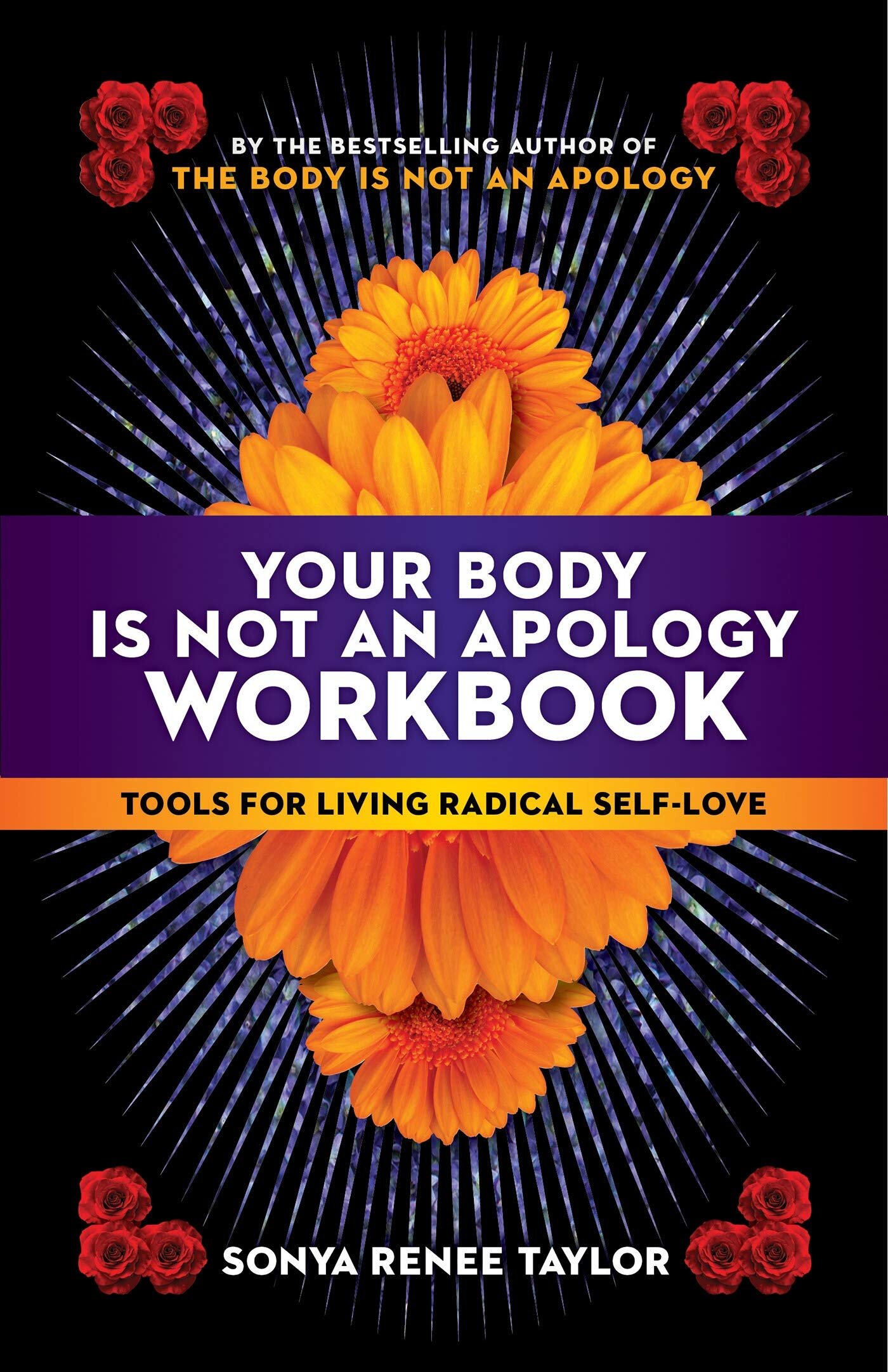Book Thoughts: Your Body Is Not an Apology Workbook
This post contains affiliate links. See the affiliate disclaimer here.
Call it imposter syndrome, or self-sabotage, or whatever you like, but when something goes wrong in my life — especially when it’s something foundational, i.e. financial, emotional, or structural — my first instinct is to blame myself. I immediately attempt to find the flaw in how I behaved and justify what’s happened based on what I did or didn’t do, or how I did something, or any combination thereof.
And even though I have spent the last several years in fat liberationist spaces, seeking radical change for fat people in the world at large, sometimes, my self-critique turns toward my body. I know I am not alone in this; I frequently breathe a sigh of relief when I see a fat activist or creator I admire talk about how persistent negative body talk can be, even after years of doing this work. Practicing and embodying radical self-love requires tools, none of which are provided to us by the rampantly fatphobic society into which we are born. Those of us who are marginalized in other ways have to unlearn hate targeted at those parts of our personhood, as well, and it can be so hard to navigate these gargantuan tasks.
In The Body Is Not an Apology, author Sonya Renee Taylor lays the foundations for living radical self-love in everyday life, but in Your Body Is Not an Apology Workbook, she provides readers with the tools to change their thinking and approach their bodies and lives through this framework. The activities in this workbook range from short-term to long-term, and some will come easier than others.
Taylor outlines a three-step process for living radical self-love: Thinking, Doing, Being. There’s space to brainstorm and free-write on these topics in the introduction to the book, which can be used before, during, and even after completing the tasks in the book itself to reflect, express fears or worries, or celebrate victories. Although Your Body Is Not an Apology Workbook builds upon skills and tools established throughout, Taylor notes that readers can approach this work however they feel is appropriate for them. Trusting your intuition will be key here, as will a willingness to sit with uncomfortable feelings. There’s no time limit or strict structure to this work, because even though these tools are in a sense universal, the work itself is very individualized.
After identifying the three-step process toward creating a radical self-love life, Taylor presents four pillars of practice: Taking out the toxic, Mind matters, Unapologetic action, and Collective compassion. These pillars are further broken down into specific tools. There are 10 total, and they range from writing to drawing to telling mad-lib style stories. No two tools are exactly the same, and Your Body Is Not an Apology Workbook asks its readers to examine every part of their experience, from the media consume to the friends they hype up.
I have not completed this workbook, because to some extent, I think it will be a companion for some time. However, after diving into several of the tasks and reading through others, I am deeply impressed by and excited about this book. It’s an incredible companion to Taylor’s The Body Is Not an Apology (which I also highly recommend) and it establishes an excellent road map for restructuring your thoughts, actions, and way of being to dismantle and destroy body terrorism. No matter where you’re at in your relationship with your body, I think this workbook can provide you with useful and necessary tools for living radical self-love.
Your Body Is Not an Apology Workbook: Tools for Living Radical Self-Love by Sonya Renee Taylor is available now, wherever books are sold. A copy of the book was provided by the publisher for review.
Your Body Is Not an Apology Workbook: Tools for Living Radical Self-Love by Sonya Renee Taylor
Based on the New York Times bestseller The Body Is Not an Apology, this is an action guide to help readers practice the art of radical self-love both for themselves and to transform our society.
Want to stay up to date with what I’m reading? Follow me on Bookworm Reads or Storygraph!
✦ Like what you read? Leave a tip!

